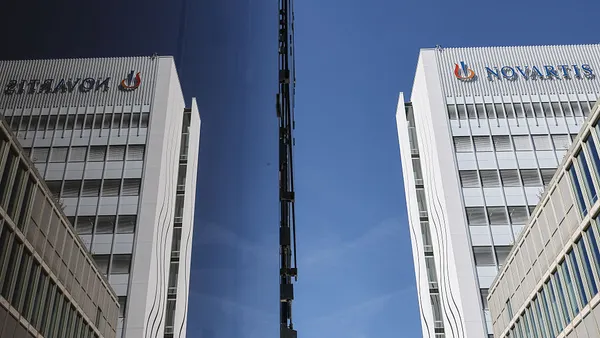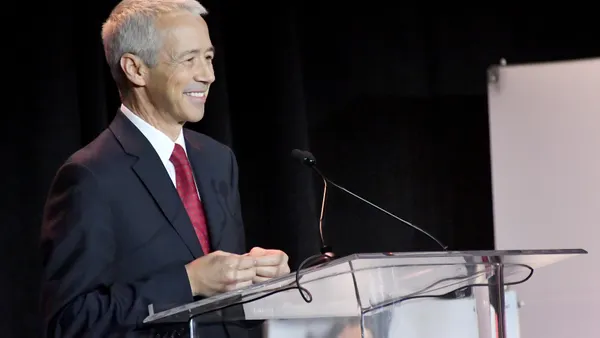As the workforce adjusts to a post-pandemic model, one of the biggest challenges for leaders across the board is how to keep their corporate culture thriving while being sensitive to the needs of their employees.
The numbers show that a new workforce environment is here to stay. According to a recent Harris Poll, 25% of the workforce is remote and 23% is hybrid.
McKinsey & Company notes there are four key management tips that leaders and employees can adopt to be more effective in a hybrid environment:
- Manage performance through outcomes, impact and ownership by setting clear objectives, goals and accountability.
- Build trust together by modeling reliability, acceptance, openness and authenticity.
- Engage and be present — model what you expect from your teams and empower teams to create a like-minded vision and goals.
- Adopt a team problem-solving mentality — this fosters not just buy-in but ownership.
Here's how C-suite executives from across the life sciences industry are addressing the realities of a hybrid work environment.
Get over it
“This may not be the most popular opinion, but executive leadership needs to get over it. As a member of executive leadership, we want what we grew up with in our industry — and expect that it is the only right way to build a career — but that is not the needs or desires of the generation following us or the generation that follows them. As leaders, we need to appreciate their passions, and their paths will not look like those we took in our careers. Of course, this is easier said than done and requires a different approach to developing people for the long term. However, the change does not need to occur in the employee base but must happen in the ranks of middle and senior management.”
Michael Cruse, COO, Reneo Pharmaceuticals
Embrace ‘upskilling’
“Companies should empower and upskill managers and people leaders. This is a critical segment of the workforce that has an outsized role in how engaged and productive employees are at work, which is even more pronounced in a hybrid environment. This means providing managers with the set of tools to enable their success and their teams’ success, setting a clear vision of what is expected to empower employees to own the outcomes of their work, and creating an inclusive environment by proactively seeking and listening to employee perspectives to allow for ongoing dialogue of how work outcomes can be most effectively delivered in a hybrid world.”
Ben Shirley, life sciences people advisory services leader, US-East, EY
Appoint a culture ambassador
“Meeting the challenge head-on and getting creative about ways employees can maximize their in-person time can unite teams and create bonds that transcend the miles between colleagues. It is a challenge that can be transformed into an opportunity.
We have a team-building guide with dozens of ideas for creatively connecting with teams both in-person and virtually. We also have a ‘culture ambassador’ team comprised of employees across the globe that is designed to keep the culture conversation flowing.”
Kimberly Pope, chief people officer, ADC Therapeutics
Leverage tech
“We have addressed the culture clash by clearly identifying which roles at our startups require an ‘on-site presence’ on a daily, weekly or monthly basis, and we have implemented flexible work-from-home policies. We schedule regular times when all staff can appear on site, like quarterly retreats or monthly all-hands meetings, which help our hybrid work environment thrive. In tandem, we created customized environments, which allow staff to seamlessly move between virtual, hybrid zoom and in-person meetings with the implementation of high-quality audio-visual tools such as large screen LCD TVs integrated with SharePoint servers and video tools to image whiteboards.”
Dr. Ranjit Bindra, co-founder, Modifi Biosciences
Create a new culture
“Companies need to stop solely focusing on how to best entice people to come back to the office and start focusing on creating best practices to ensure a successful hybrid culture with the right technology to allow for a seamless experience.
Focus on results no matter where the work is done, stay connected to your teams and celebrate the successes both in the office and remotely.”
Courtney Murphy, global people director, Ogilvy Health
Empathy remains key

“Success in the hybrid work environment needs a new level of empathy along with the rapid adoption of technology. As teams around the world collaborated remotely during the COVID-19 pandemic, a hybrid work phase has introduced new complexities to organize work and personal life around.
Naturally, it demands a new level of empathy until we all figure this out. And even though the technology to enable collaboration and remote work has been around for quite some time, adopting it as a way of life needs more effort in change management.”
Milesh Gogad, chief marketing officer, Indegene












